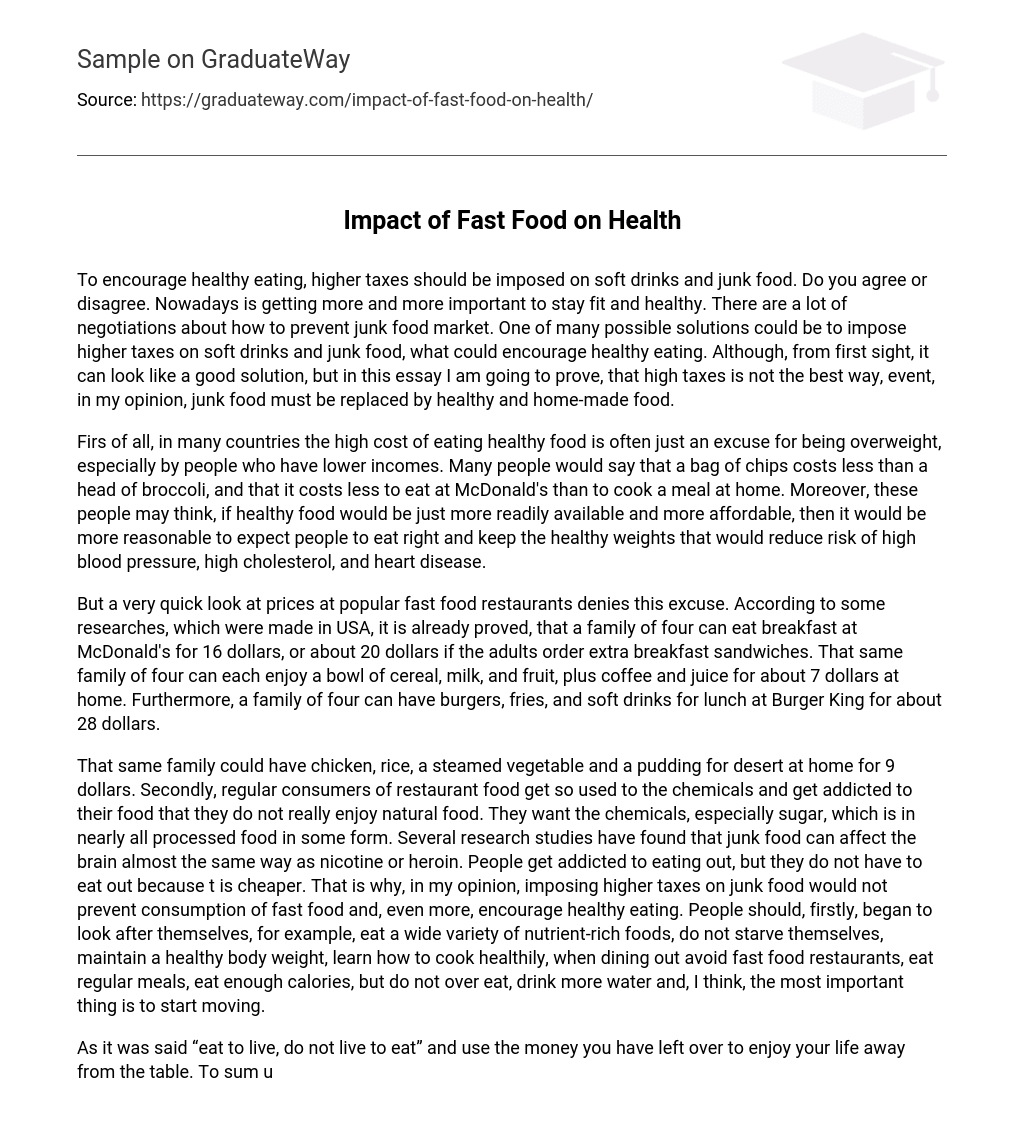The suggestion to impose higher taxes on soft drinks and junk food is made in order to promote healthier eating habits. Nevertheless, this essay presents the argument that substituting unhealthy food with nutritious, home-cooked meals might be a more effective approach.
One frequently cited reason for obesity, especially among those with lower incomes, is the high cost of nutritious food in many countries. Some argue that unhealthy snacks like chips are cheaper than healthier alternatives such as broccoli and claim that eating at McDonald’s is more economical than cooking at home. Additionally, there is a belief that increasing the accessibility and affordability of healthy food would enable people to choose healthier options and maintain a healthy weight, thus reducing the risk of conditions like high blood pressure, high cholesterol, and heart disease.
Despite the claim that eating at home is more costly, a direct comparison of prices at popular fast food establishments proves otherwise. Research conducted in the USA has already demonstrated that a family of four can have breakfast for $16 at McDonald’s, or roughly $20 if the adults opt to include extra breakfast sandwiches. In contrast, the same family can enjoy a breakfast including cereal, milk, fruit, coffee, and juice for around $7 in their own residence. Furthermore, lunch at Burger King—comprising burgers, fries, and soft drinks—can amount to approximately $28 for a family of four.
The cost of a family meal at home, including chicken, rice, steamed vegetables, and pudding, is only 9 dollars. However, frequent restaurant-goers develop a dependence on the chemicals in their food and lose appreciation for natural ingredients. These individuals specifically crave sugar found in processed foods. Studies show that junk food can affect the brain similarly to addictive substances like nicotine or heroin. Despite the affordability of cooking at home, people become unnecessarily addicted to eating out. To promote healthier eating habits, I believe increasing taxes on junk food would be more effective than discouraging fast food consumption. Instead of relying on unhealthy options, individuals should prioritize their well-being by consuming nutrient-rich foods and avoiding starvation while maintaining a healthy weight. They should also adopt healthy cooking practices and choose non-fast food restaurants when dining out. It is important to consume regular meals without overeating and ensure sufficient calorie intake while increasing water consumption. Most importantly, incorporating physical activity into one’s daily routine is essential.
Despite efforts made, it is impossible to completely avoid consuming soft drinks and junk food. These items have a detrimental effect on the brain, leading to addiction. Increasing taxes is not an effective solution for this issue. Instead, individuals can enjoy numerous benefits by adopting a diet that eliminates unhealthy food, sugars, and junk food. These advantages encompass improved health, heightened energy levels, enhanced vitality, and an overall better quality of life.





